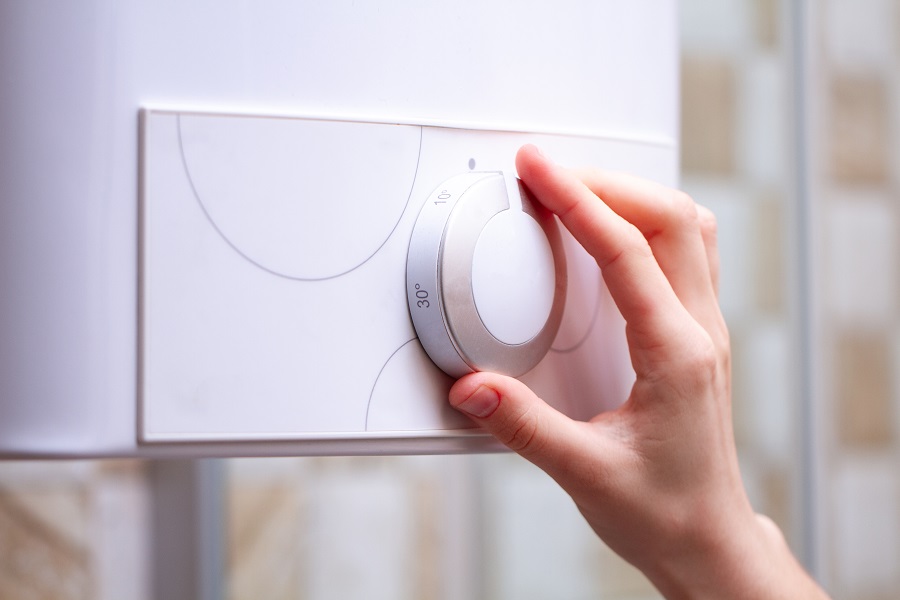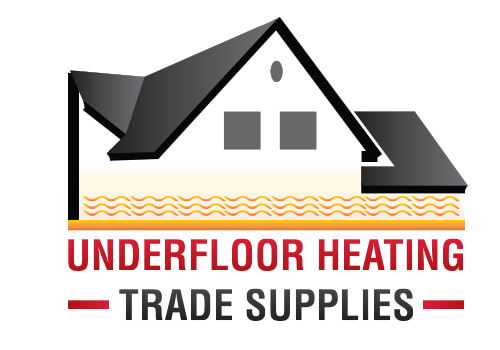
At Underfloor Heating Trade Supplies, we understand the importance of maintaining your boiler. If your boiler is working effectively, then your underfloor heating will offer all the comfort and warmth you need in the winter months. If for some reason the pressure from your boiler is too low or too high, then you might worry heating is malfunctioning.
Boiler pressure is essential. It keeps the water flowing effectively around your home. It is the pressure of the hot water running in your sealed heating system. Unlike water pressure, which is the amount of pressure that allows water to flow from your taps, boiler pressure is a means of ensuring heated water flows through your heating system.
If the pressure is too low, then your heating may not work. If the pressure is too high, then the system is put under pressure and may fail. Your boiler may automatically lockout if it loses too much pressure, or the pressure becomes too high. This lockout means that it will just stop working and you will likely need to seek the support of an engineer.
Why does my boiler keep losing pressure?
There are two likely causes for your low water pressure: one is a leak, and the other is that you have bled your radiators.
The system may only be leaking a small amount of water, and you may not notice any effects. However, over time, the leak builds up, and there will be a drop in water pressure, as the system is losing water. You will need to take a look around the external pipework and radiators around your house and look for damp spots. You should not open the boiler yourself and should instead call for an engineer.
If you have recently bled your radiators and/or bled your underfloor heating system, you will have removed pressure from the system. The air in the radiators would have increased this pressure. Now, this air is removed, the pressure will have dropped. The boiler should rectify this over a short time.
If neither of these issues is relevant, then you may need to increase the boiler pressure yourself.
What to do if your boiler starts losing pressure
If you notice your boiler losing pressure (especially if it drops below 0.5 on your boilers gauge), it’s important to act quickly as your boiler may lock out if the pressure becomes too low. In simple terms, the boiler will stop working, and it will need to be reset. It may be that more water needs to be added to the system using the external filling loop.
Depending on the cause of the low boiler pressure, it is possible to rectify the problem yourself. If at any point the job requires tools, you should strongly consider employing a Gas Safe engineer to come and do this work. If the remedy can be done by using the control panels of the boiler, you should be able to do this yourself.
How to increase boiler pressure
- Your first option should be to reset the boiler. This is the equivalent of switching it off and switching it back on again. There should be a reset button somewhere on your boiler. It is best to check the operator’s manual to find this reset button.
- If this doesn’t work, you may be able to re-pressurise the system yourself. When you pull down the cover flap of the control panel, there may be instructions for how to re-pressurise the system. If you are at all unsure or you need tools to remove the control panel, seek the help of an engineer.
- Re-pressurising your boiler generally means adding more water to the system from the mains supply via your filling loop. There are two types: built-in and external.
- To use the filling loop to re-pressurise, you should switch your boiler off and allow it to cool down. You should then check that both ends of this filling tube are securely attached before opening both valves, allowing cold mains water into the system. You should hear the water running in.
- Keep the valves open until the gauge reads 1.5 bar, then close the valves. You should switch the boiler back on and press the reset button. Remove the filling loop, being careful to catch any water spillage.
Is low boiler pressure dangerous?
Low boiler pressure is nothing to panic about. The most pressing problem is that you are cold. Your heating might not work well, and you might not get the hot water you need for a bath or a shower. It can also impact the efficiency of your system – so it might take a lot longer for the system to heat up to the temperature you desire.
What if your boiler loses pressure when the heating is off?
There are a few reasons why your boiler may be losing pressure when it is switched off. It may be that there is a leak in your pressure relief valve or that there is air in your system somewhere. It may also be that there is a small leak that you have yet to notice has caused an increasing problem.
What is it loses pressure when the heating is on?
Loss of pressure when the system is on could indicate that there is a problem with the pressure relief valve, an issue with your expansion vessel, that there is heat in your system that needs bleeding or that you have a leak somewhere in the system. You mustn’t attempt to do any work on your boiler while the water is hot. If the job requires you to dismantle the boiler, then you should seek the help of a Gas Safe engineer.
What pressure should your boiler be?
In order to spot your boiler losing pressure, you need to know what the correct pressure is. There should be a dial on the front of your boiler, or hidden somewhere beneath its cover (this may just be a digital display on modern units), showing a scale from 0 – 4 and with the word “bar” printed somewhere. This is the gauge showing the boiler’s pressure. Generally, it does not matter what type of boiler you have; the standard operating pressures are similar. Here we offer you a quick guide to the usual pressures when a boiler is cold, warming up or when it is hot.
What pressure should your boiler be when it is cold?
Your pressure gauge should be pointing to somewhere between 1 and 1.5[i] bar when the boiler is cold. If you look in the operation manual, you will likely find an optimal pressure of 1.3 bar. You should check your particular operation manual to see the exact optimal pressure for when the boiler is cold.
What pressure should your boiler be as it warms up?
The pressure in your boiler should increase as it heats up. The rise in pressure should be gradual and mostly subtle on the gauge unless you watch for the whole time of heating.
What pressure should your boiler be when it is hot?
A boiler’s pressure doesn’t rise that much when the water is hot. There should only be a difference of between 0.3 or 0.5 bar. This means your boiler pressure should be no more than 1.8 bar or two as the maximum limit.
The pressure rises when the heating is running because water expands when it is hot. Therefore, as water in your pipes, radiators, underfloor heating, etc. becomes warmer, it naturally fills up more space and increases the pressure in the system.
If, when you look at the gauge upon switching the boiler on, there is a noticeable rise of more than a bar, then you are likely experiencing a boiler fault. It may be there is a problem with the expansion vessel or your pressure release valve.
Is your boiler pressure too high?
When water is heated, it expands and takes up more space – therefore naturally increasing the pressure in the system. It is only if this pressure increases too much or too quickly that there is potentially a problem. Your boiler pressure should go up when the boiler is switched on. However, the rise should be small – something like 0.3 and 0.5 bar. If your pressure rises quickly or exceeds 2 bar on the gauge, then there might be an issue that needs intervention.
Read More: Why is my boiler pressure too high?
Protect your boiler – get it serviced
When boilers lose pressure, it will severely impact the effectiveness of your underfloor heating. Your home will be cold, and you will have no access to hot water. Your boiler is a sealed system that works to balance the air and water circulating your home. If this goes out of balance, then you are going to struggle. An annual service of your boiler should prevent this from ever being an issue. Regular maintenance of your radiators, or releasing air from your underfloor heating, should also help to keep this problem at bay. When problems of high or low pressure in your boiler hit, feel assured that most solutions are easy and you should have your heating back in no time.
Does a new boiler increase house value? Find out now.
Sources
[i] https://www.boilerguide.co.uk/articles/what-pressure-should-my-boiler-be
